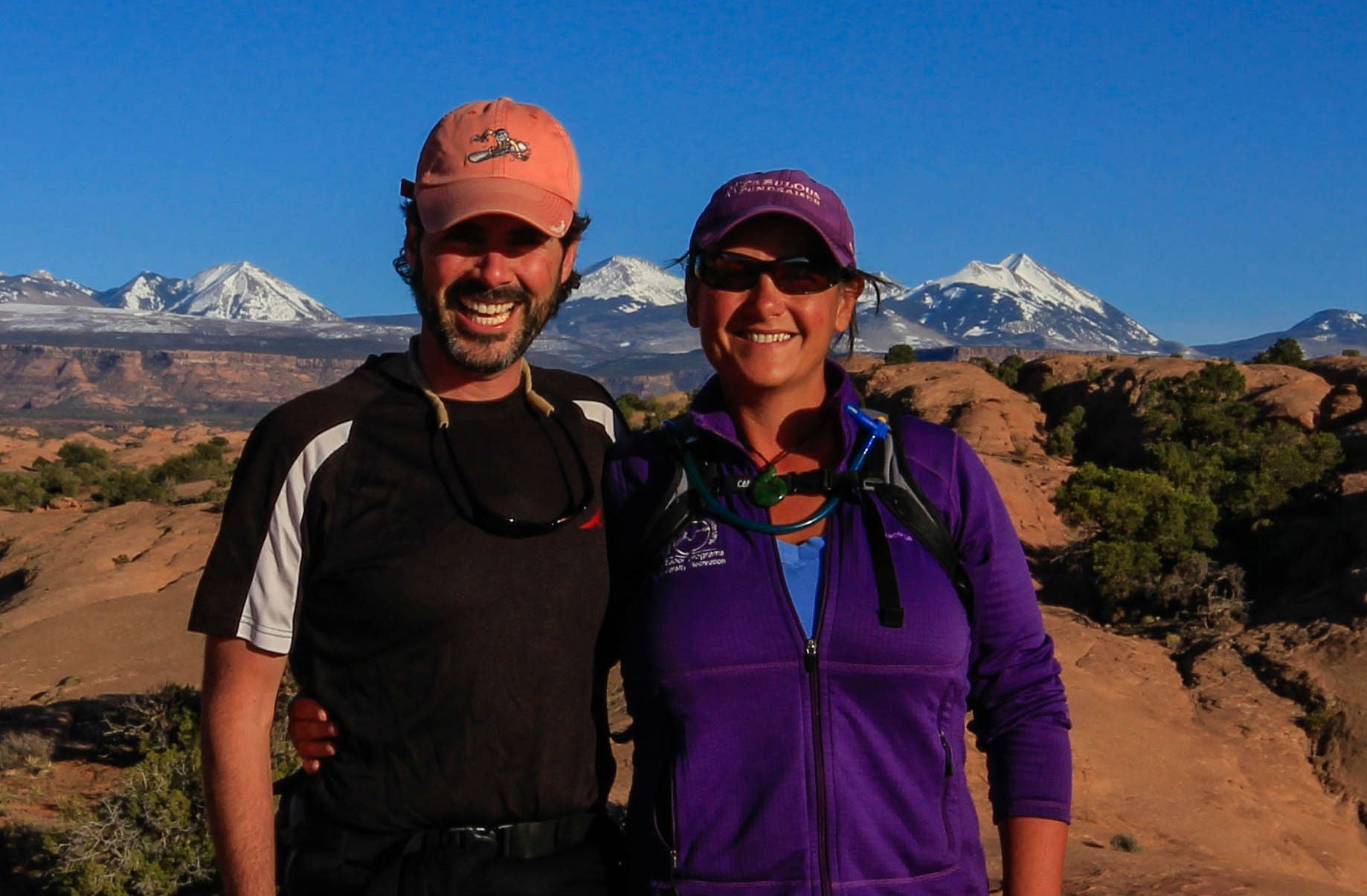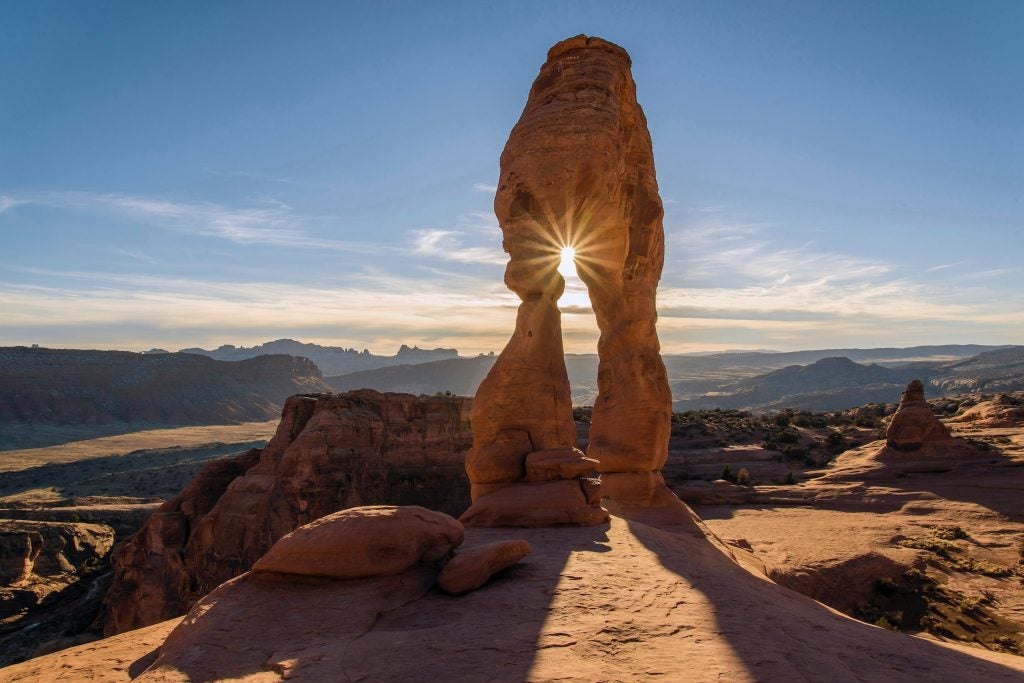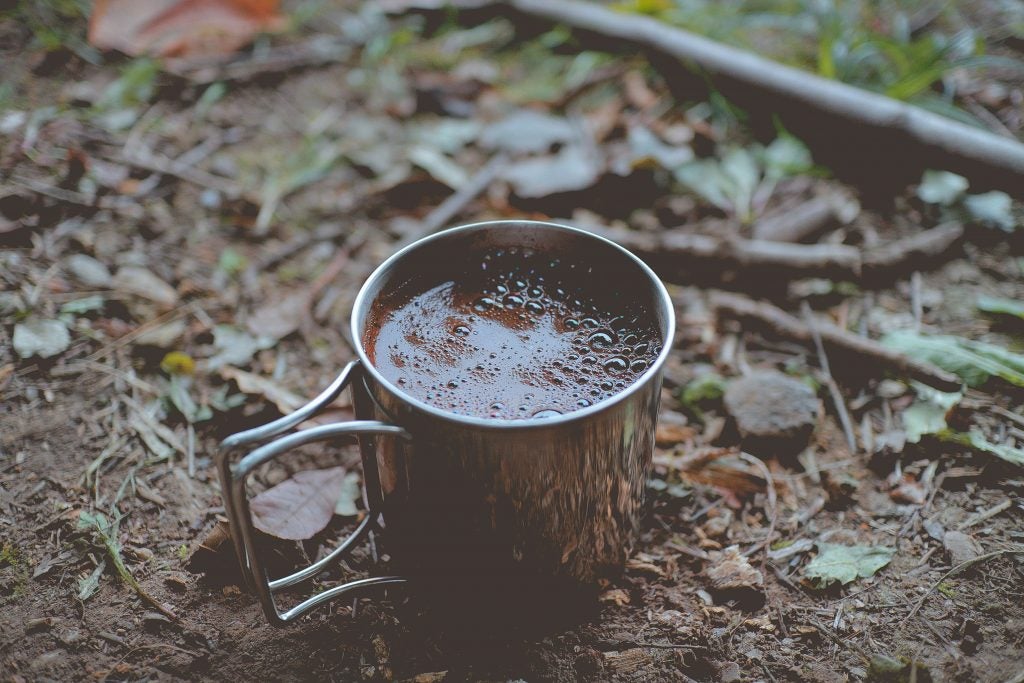“Tomorrow, I want you to drop me off at the bus station, and I’ll catch up with you… whenever.”
We’d both just returned to our little house on wheels when my wife, Shari, dropped this bombshell. An afternoon apart hadn’t dissipated the heat from our most recent disagreement. Rather, Shari’s anger hardened into resolve. It wasn’t the first time she’d been mad enough to drive off, but it was the first time she’d ever considered outsourcing transportation. She wasn’t going to leave me stranded; she was just going to leave.
The specifics of the disagreement weren’t all that important, as we’d struggled with that issue for years. Just because we transformed our small space, didn’t necessarily mean that we’d left all of our baggage behind. Seventy-two square feet has a heightened effect on our conflict and resolution cycle – everything happens quicker.
“Seventy-two square feet has a heightened effect on our conflict and resolution cycle – everything happens quicker.”
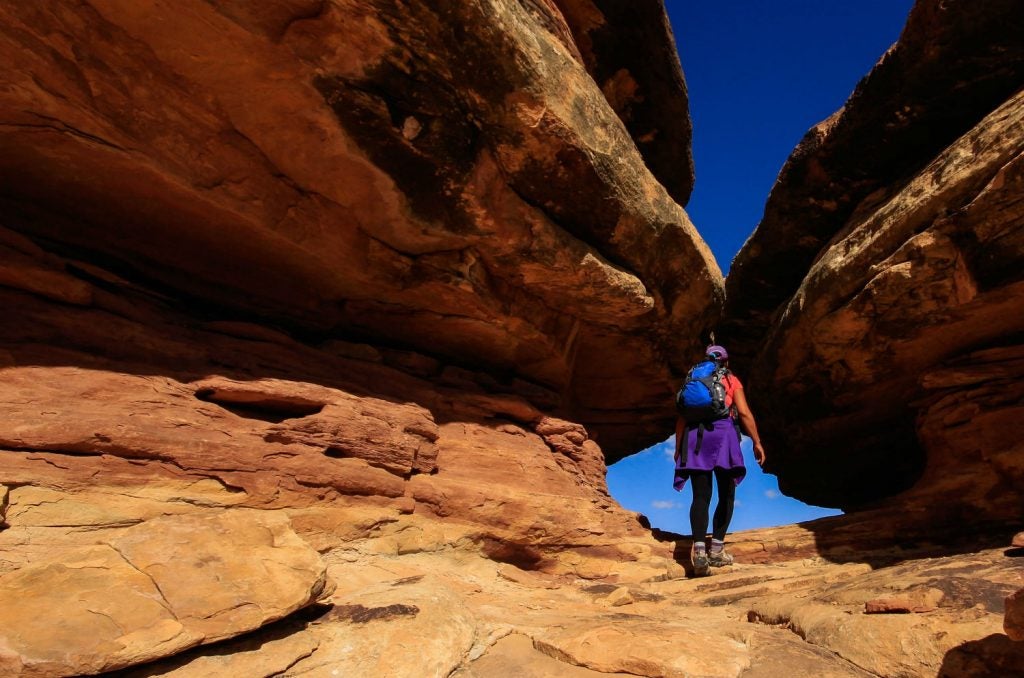
Shari hiking in Canyonlands National Park.
I didn’t end up dropping her off at the bus station, but I did take a hard look at what I was doing to make her want to go there.
Our space is so small that an older gentleman at a gas station once asked, “Do you have to go outside to change your mind?” It remains one of our favorite comments. His hyperbole is truly on target as a metaphor. We have had to change our minds about expectations and goals so that we both create this experience together. Sometimes that requires us to go outside and seek personal space; but fortunately, it has not yet meant buying a bus ticket.
“Our space is so small that an older gentleman at a gas station once asked, ‘Do you have to go outside to change your mind?'”
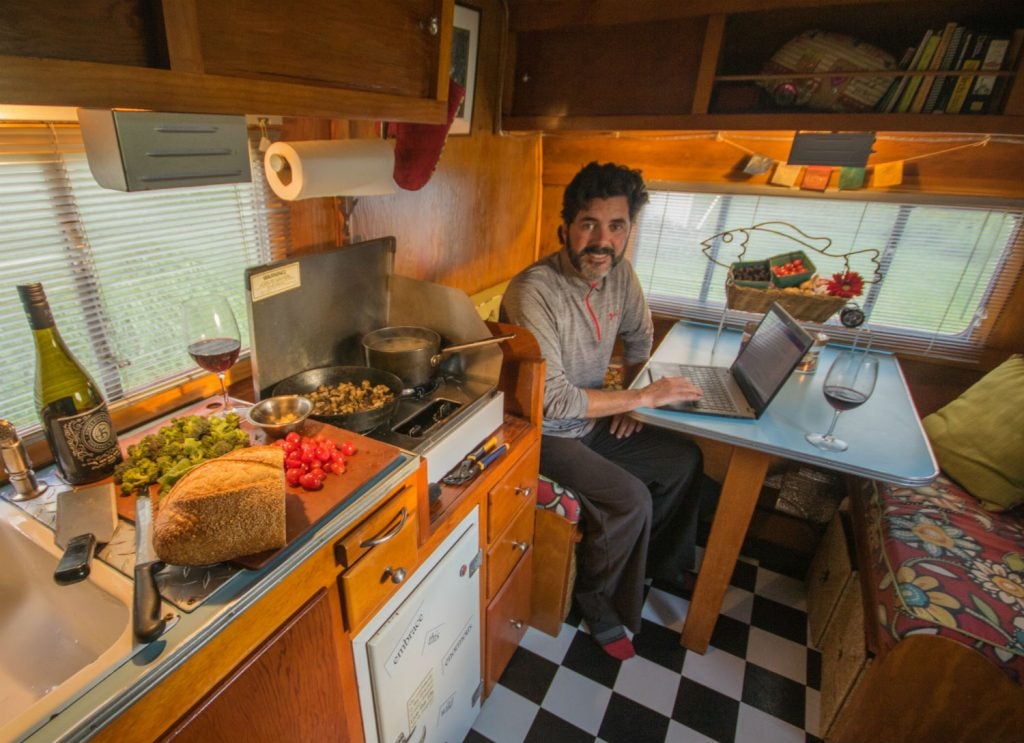
Adjusting to life in a small space takes both a philosophical and literal adjustment. The first forces us to change how we think about what it means to be “at home.” Going small is as much about what we value, as it is about saving money. It is an aesthetic of simpler, smaller, lighter, and better. Our space facilitates living outside as much as possible. We have to find “home,” wherever we are.
The second adjustment, the literal one, is how we both operate within our canned ham camper. Cooking inside the camper, for example, requires a bit of an unchoreographed dance. While we both love to cook, we have to stay out of each other’s way while filling important roles. For instance, Shari will sit at the table serving as the sous chef while I’m at the stove (or vice versa). Figuring this out took a bit of practice, but we’ve pulled off some amazing meals in our camper!
Giving each other space to do our own thing took some learning as well – whether that’s writing, reading, sleeping, whitewater kayaking, or photography. Expressing what you need, when you need it, is all part of a healthy relationship. We’ve learned to not take it personally when our interests diverge.
“We’ve learned to not take it personally when our interests diverge.”
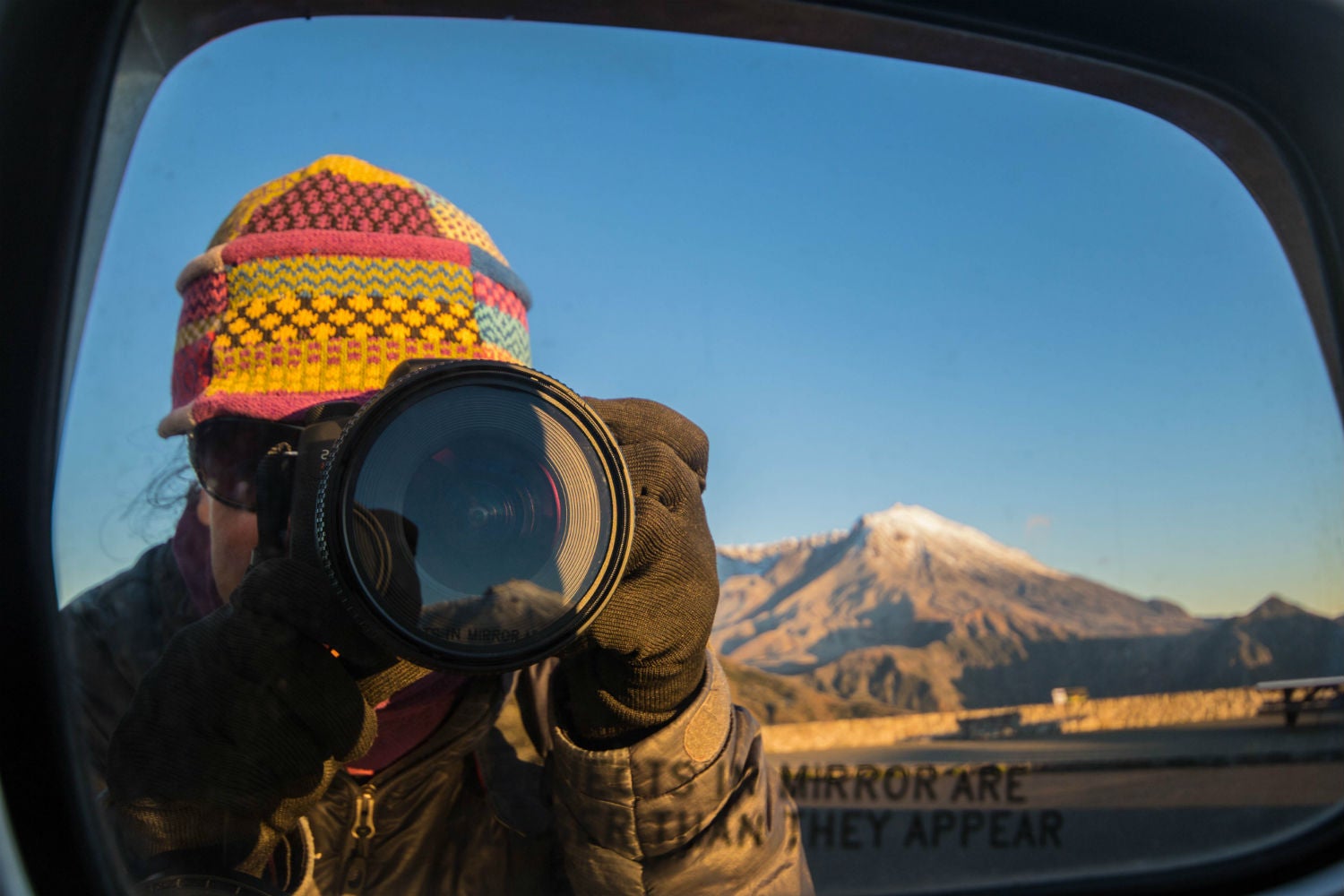
It’s also important to embrace and support each other’s hobbies. Shari is a photographer and loves to get up before sunrise to watch the sun crest an ocean, summit, or glacier. I play along by dropping the tailgate and breaking out the Coleman stove. In the time it takes for the sun to break the horizon, I’ve got eggs, toast, and a second cup of coffee ready. My favorite activity, whitewater kayaking, scares Shari to death. So, she happily plays the role of shuttle driver and preps a meal while I deal with all of my wet gear.
But we also left our previous life so that we could spend more time together — so we focus on experiences we both enjoy.
We both love sea kayak camping out on remote islands, hiking, backpacking, and bikepacking for days at a time. These experiences remain among the more memorable parts of our journey together.
Being patient and supporting each other when one person is sick or injured is something you might not think about when you’re prepping to hit the road. Thank goodness it hasn’t happened to us often. We actually feel healthier and younger since hitting the road than when ever did while working full-time office jobs. When it does happen, the sick person needs some space to heal and feel better, so we support the other by doing the cooking, washing, and driving. This might mean staying put for a few extra days. Perhaps the illness is a reminder that life has gotten too busy and the body needs to slow down and recover?
Overall, this lifestyle has forced us to check our egos — to really examine our own motivations and to celebrate the differences in each other. This has helped us to become more flexible, more patient and better equipped to recognize when we are approaching a “bus station” moment.
Read More from Full-Time Campers – and small spaces experts – Shari and Hutch:
- Full-Time Campers Share How They Save for Camping and Travel Expenses
- No Reservations? No Problem.
- Discover Five-Star Camping in the Blue Ridge Mountains
- How to Prepare for Life on the Road
- Wild Animals and Coastal Camping in South Carolina
The Dyrt is the fastest-growing camping app on web and mobile, with new features being rolled out regularly. If you love the outdoors, discovering ideal spots to pitch your tent, and being part of a rich and active community, then join us.
The Dyrt is the only camping app with all of the public and private campgrounds, RV parks, and free camping locations in the United States. Download now for iOS and Android.Popular Articles:
Articles on The Dyrt Magazine may contain links to affiliate websites. The Dyrt receives an affiliate commission for any purchases made by using such links at no additional cost to you the consumer.

